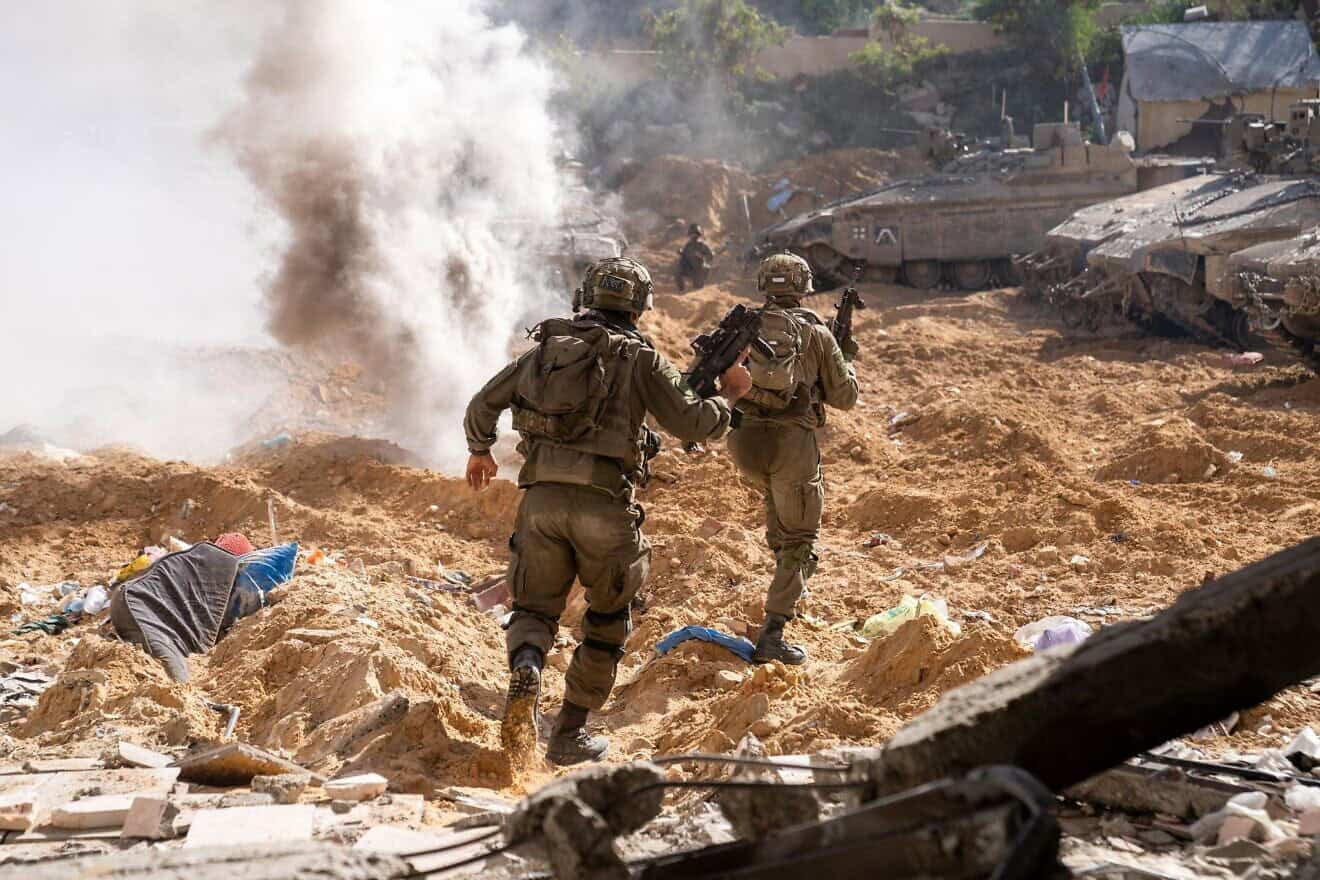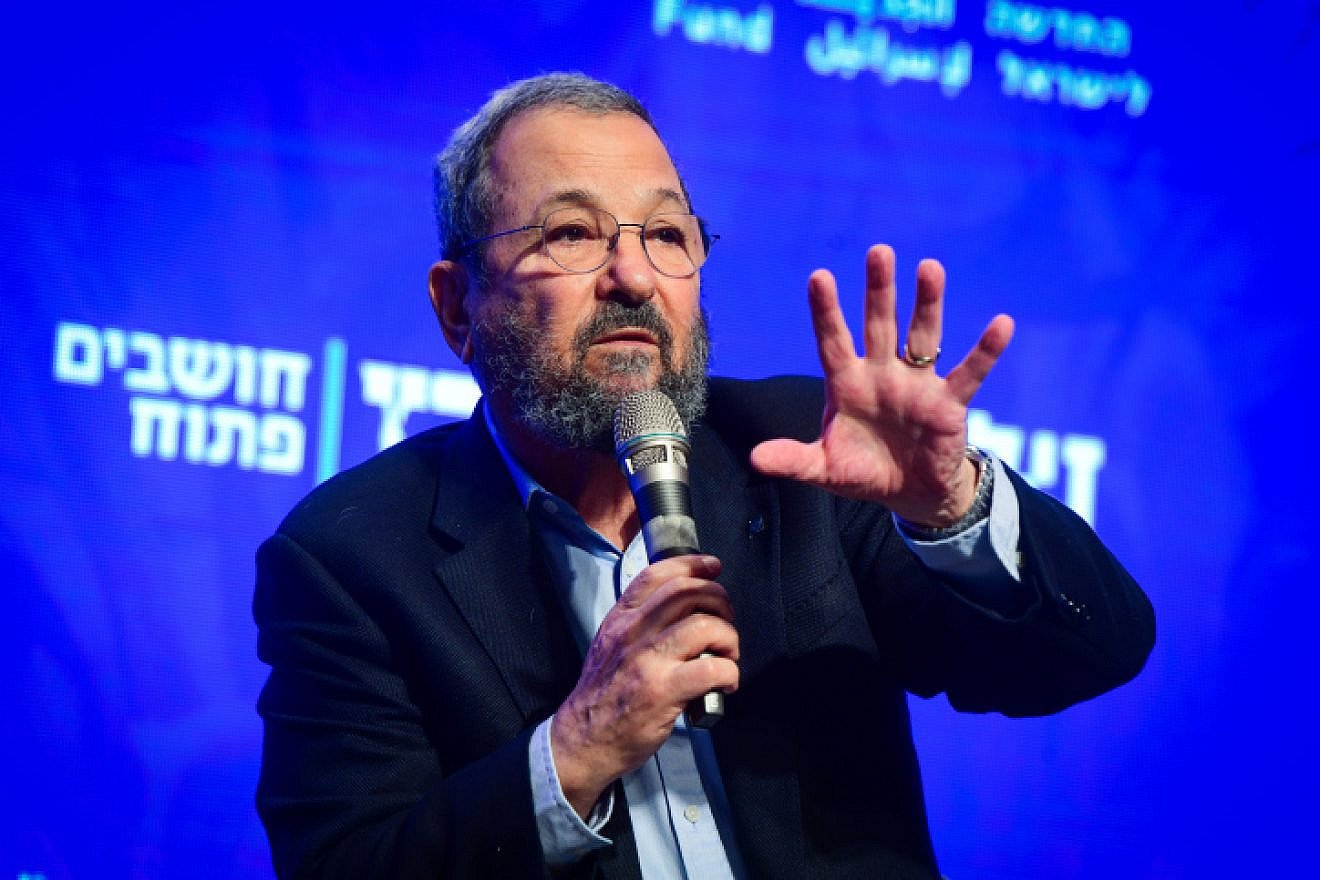 Far-Left Antisemitism Surged 324.8% Around the World in 2024, New Report Finds
Far-Left Antisemitism Surged 324.8% Around the World in 2024, New Report Finds
David Swindle
 A pro-Hamas march in London, United Kingdom, Feb. 17, 2024. Photo: Chrissa Giannakoudi via Reuters Connect
A pro-Hamas march in London, United Kingdom, Feb. 17, 2024. Photo: Chrissa Giannakoudi via Reuters Connect
Global antisemitism surged by a staggering 108 percent in 2024 compared to the prior year, fueled largely by far-left ideology, according to a new report.
The Combat Antisemitism Movement (CAM), a coalition of hundreds of organizations that fight anti-Jewish bigotry around the world, has released its annual report of antisemitic incidents, identifying 6,326 total cases last year with the vast majority — 4,329, or 68.4 percent — fueled by far-left ideology, a reversal from the group’s 2022 research in which the far right dominated and the 2023 findings which found a parity between the political spectrum’s two extremes.
“We are now facing the most severe wave of antisemitism since the end of the Second World War, a phenomenon that demands urgent global attention,” the CAM report states in its introduction. “Jewish communities worldwide have been subjected to an unrelenting onslaught of violence, harassment, and systemic discrimination, fueled by a fusion of far-left, far-right, and Islamist extremism. The international failure to combat this resurgence threatens the very security and stability of Jewish life around the world.”
CAM’s researchers found that incidents motivated by far-left beliefs had increased 324.8 percent from 2023 and Islamist-centered incidents (461) jumped 54.8 percent, while far-right-driven incidents (461) had fallen 54.8 percent. CAM attributed “radicalized social movements, media disinformation campaigns, and efforts to target Jewish communities under the guise of anti-Israel activism” as the primary culprits behind the jump in leftist antisemitism. The group also stated that Islamist recruitment tactics specifically target “vulnerable individuals susceptible to radicalization.”
To explain for the drop in right-wing incidents, the report’s authors suggested that “amid widespread and intensive media coverage of the Israel-Hamas war and related protests, political activity, and antisemitism – typical of far-left and Islamist circles – relatively less coverage is dedicated to far-right antisemitic incidents.”
While the report documents an increase in anti-Israel antisemitic speech, it also explains that classical antisemitism remains more likely to motivate hate crimes including vandalism, threats, and assaults.
“Far-right incidents are slightly more likely to manifest as violence and much more likely to involve vandalism than far-left incidents,” the report states, noting that 4.6 percent (21 of 461) of far-right incidents included violence or threats, compared to 3 percent (132 of 4,329) of far-left incidents. “Such trends suggest that far-right antisemites have a greater propensity than far-left antisemites to damage property or harm others,” CAM said.
Of the 6,326 total recorded incidents, 4,907 (77.6 percent) involved hate speech, 822 (13 percent) included vandalism, and 597 (9.4 percent) manifested as physical violence or threats.
The report also noted an increase of 63.7 percent in antisemitic incidents (712) which analysts could not identify with an ideology. These comprised 11.3 percent of the year’s total.
Incidents on campus also drew special attention from researchers, with 1,069 recorded at universities globally, up 120.8 percent compared to 2023 and by 198 percent compared to 2022. CAM’s analysts identified that periods with the highest incidents took place in mid-April and mid-May, correlating with when student activists’ anti-Israel protests hit their peaks.
Groups named as responsible for these demonstrations include Students for Justice in Palestine (SJP), Faculty for Justice in Palestine (FJP), and Jewish Voice for Peace (JVP). “These groups have systematically targeted Jewish students through social exclusion, harassment campaigns, and the dissemination of antisemitic propaganda disguised as political discourse,” the report states.
Researchers also offered a geographic picture of incidents, finding that 70.6 percent took place in the United States (2,553) and Western Europe (1,916). The states with the most incidents were New York (668), California (329), Washington, DC (157), Illinois (145), and Pennsylvania (142), comprising 56.4 percent of US incidents. Factors cited for these states’ higher numbers include the presence of large cities and universities.
The Anti-Defamation League (ADL) also released an annual audit of antisemitic incidents last month, with its research focused on the US and drawing from direct reports the group had received. Researchers counted 9,354 incidents, a 5 percent increase from 2023’s 8,873 incidents, a 344 percent increase over the past five years, and an 893 percent explosion over the past 10 years.
“The rise of antisemitism in 2024 is not a historical aberration — it is a defining moment in modern history,” CAM said when announcing the report. “Without resolute action now, the world risks entering a new dark era where antisemitism is once again condoned, allowed to fester, and institutionalized. Such a process creates a downward spiral, as hate begets hate, leading to the persecution and violence that have typified the Jewish experience over the millennia.”
Zawartość publikowanych artykułów i materiałów nie reprezentuje poglądów ani opinii Reunion’68,
ani też webmastera Blogu Reunion’68, chyba ze jest to wyraźnie zaznaczone.
Twoje uwagi, linki, własne artykuły lub wiadomości prześlij na adres:
webmaster@reunion68.com







